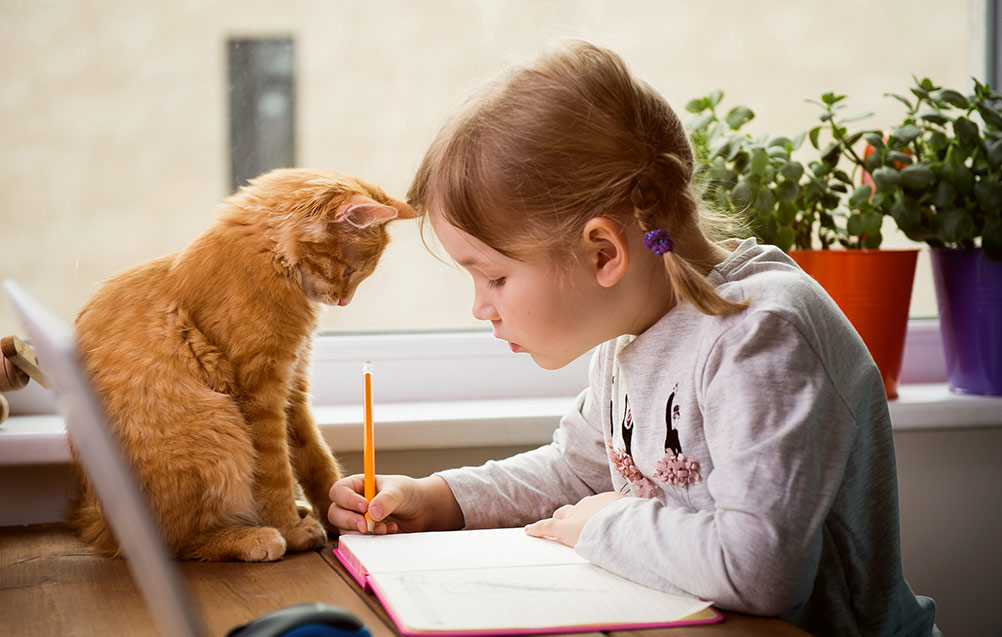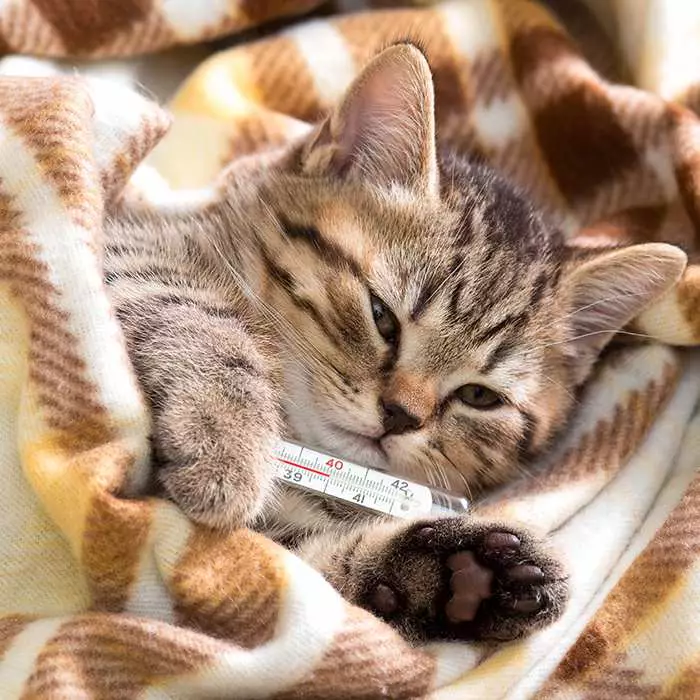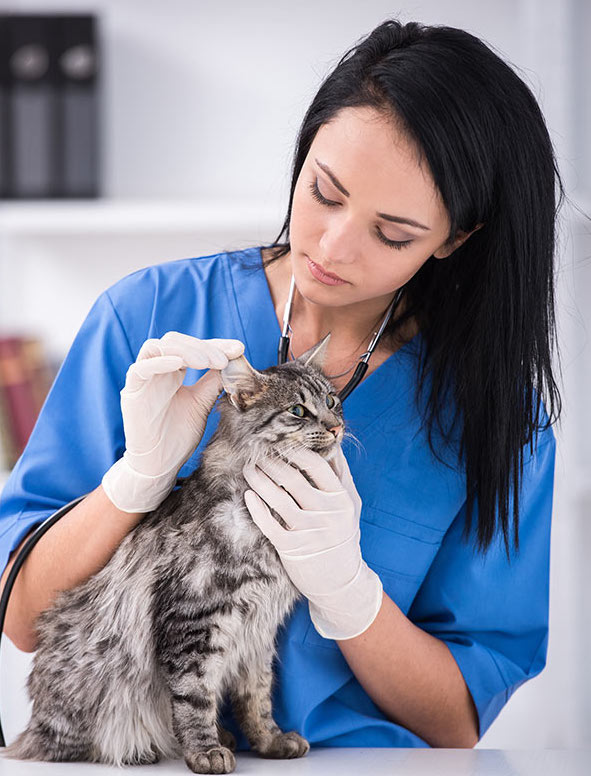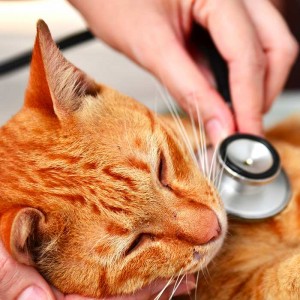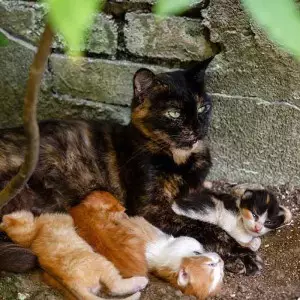Cat Sneezing: What Does It Mean?
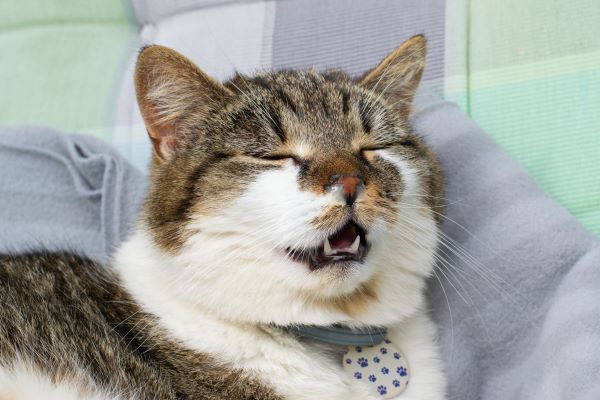
So your cat is sneezing – perhaps one of the cutest sights cat owners have the pleasure of witnessing (besides kittens falling over, that is). However adorable it appears, a sneezing cat could in fact be brewing a serious illness.
We’ve put this brief guide together so that you can better understand the possible causes of your cat’s sneezing, what it means for their health and when it’s best to get the vet involved.
Simple causes of cats sneezing
Don’t panic yet – there are plenty of simple, less worrying explanations for your cat’s sneezing. Let’s take a look at what these could be.
If your cat doesn’t come into contact with other cats and spends its time indoors, it’s likely that your cat is having an allergic reaction. Often you can help your cat’s sneezes by simply tracking down anything new to the house that might be the culprit.
Sometimes household cleaners, especially those with strong chemical scents, will elicit an achew or two! Or it may be a new houseplant or bunch of flowers that you’ve installed in the living room.
Cigarette smoke, scented candles, new perfume, pollen, chemical cleaners, pest sprays, mould and excessive levels of dust are all common causes cat sneezing. Even certain kitty litter brands can cause an allergic reaction, especially if they’re of poor quality and dusty.
Excessive sneezing
While a sneeze or two on occasion is as normal as an appetite for mice, it’s not so clear-cut when your cat is sneezing over and over, repetitively for long periods of time.
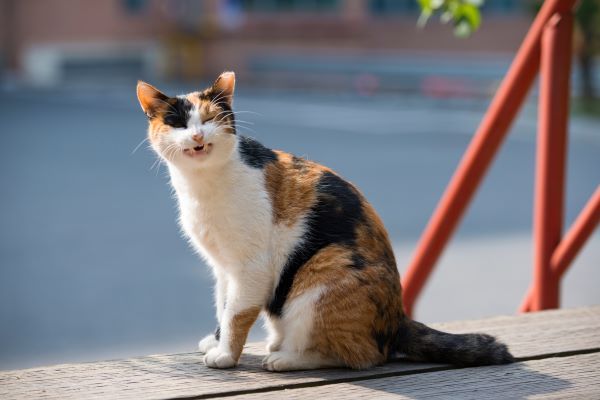
If your cat is suddenly sneezing in bursts, ask yourself if there are any other symptoms, anything else out of the ordinary whether it’s their behaviour or physical appearance.
Symptoms to look for in sneezing cats
There are a list of possible infections that could be the cause of your cat’s sneezing spells. We’ll go into these in detail shortly but for now, here are some signs that all may not be well with your sneezing feline:
- Heavy coughing or wheezing
- Diarrhoea
- Green or yellow discharge from the nose
- A fever
- Drooling from the mouth
- Poor coat – dry or patchy with heavy malting
- Weight loss
- Difficulty breathing
- Lack of enthusiasm for food
When to take a sneezing cat to the vet
Whether or not you notice anything unusual, if your cat’s been sneezing for more than several days and they’re not prone to allergies, it’s time to see the vet just in case and for your peace of mind.
After taking a look at the symptoms, your vet will probably decide to do some tests.
While nothing can be determined without tests being performed, your vet will almost always suspect a virus is the cause of your cat’s sneezing. You may be asked questions about your cat’s health history or the state of the cat’s home environment, but only tests will answer this for certain.
Your vet may take swabs of the inside of your cat’s mouth, nose throat and eyes and send them away for testing.
Diagnosis of possible illesses in sneezing cats
Just like that cold or dose of flu we get from time to time, the most likely cause of your cat’s sneezing is a mild viral or bacterial infection.
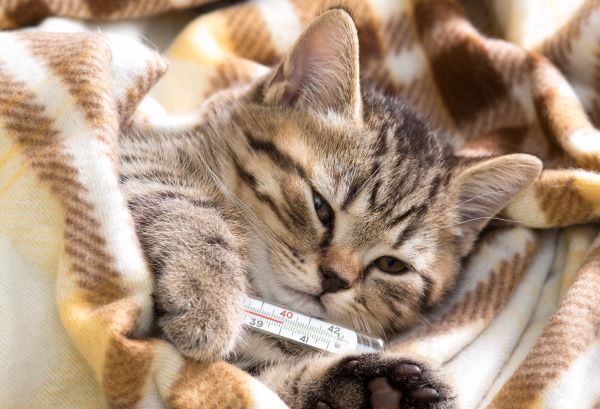
The most common viral infections that cause sneezing are feline herpesvirus and feline calicivirus. While these viruses aren’t necessarily dangerous, if left untreated other more serious infections may develop. Feline herpes, for example, can often lead to a further bacterial infection but can be treated with a course of antibiotics.
Serious health issues that cause sneezing in cats
Sneezing can be one of the first signs of a long list of other serious illnesses and conditions in cats. Some of the more serious are feline leukaemia and feline immunodeficiency virus (FIV) or ‘cat AIDS’. Feline leukaemia is in most cases fatal and FIV attacks the cat’s immune system, leaving them vulnerable to further infection and serious, life-threatening illness.
Other infections that cause sneezing in cats include:
- Bordetella
- Feline Chlamydia
- Mycoplasma
- Feline infectious peritonitis
In conclusion
There’s no need to jump to conclusions about why your cat is sneezing – there are many possible reasons, most of which are highly treatable.
It’s important to remember that only your vet will be able to make an informed assessment of your cat’s health. Get in touch with the vet if you’re concerned and organise an appointment as soon as possible.
Achew!
Bow Wow Meow Pet Insurance can help protect you and your cat should an unexpected trip to the vet occur.
-
Find out more about our cat insurance options
-
Get an online pet insurance quote





